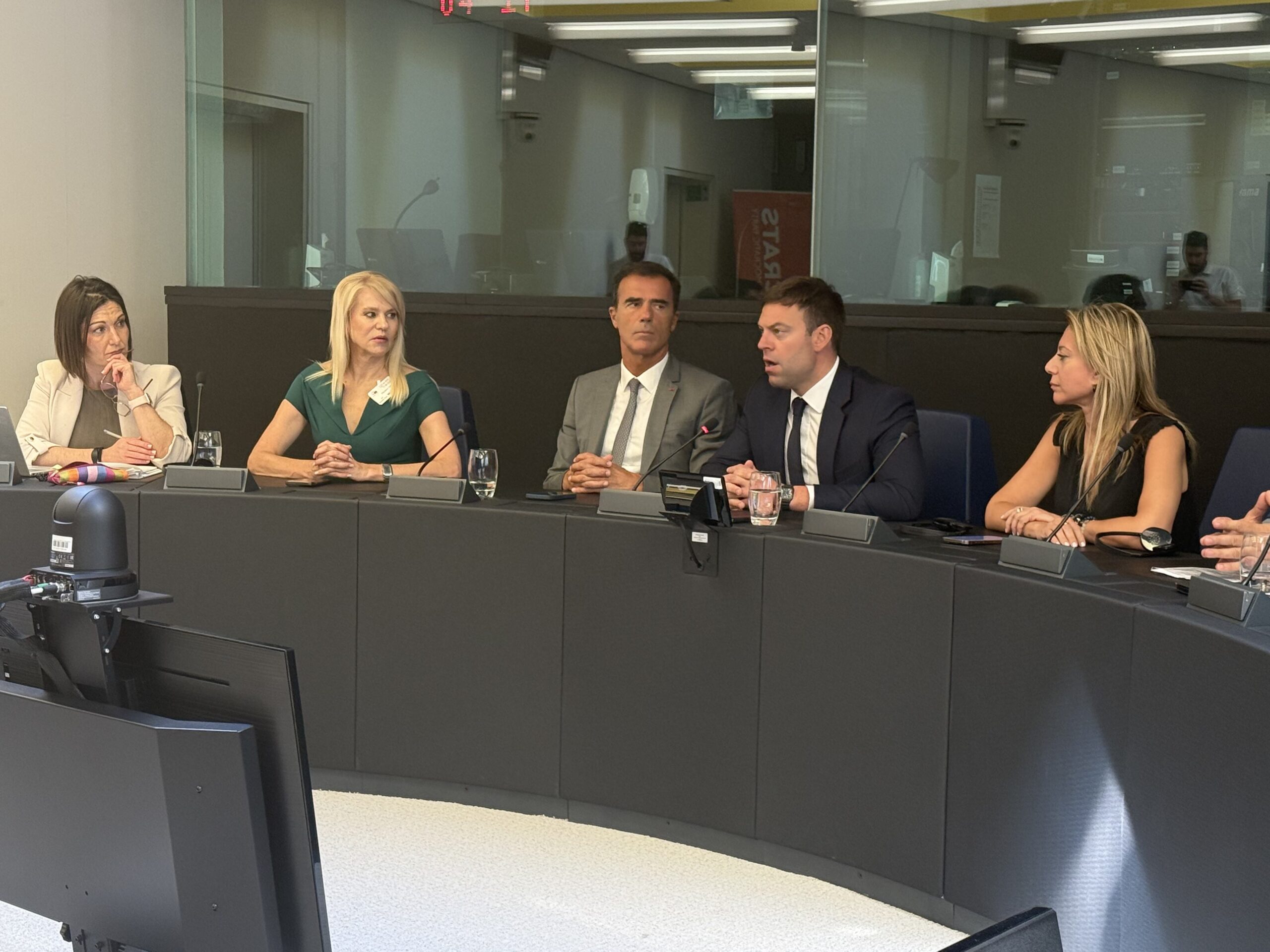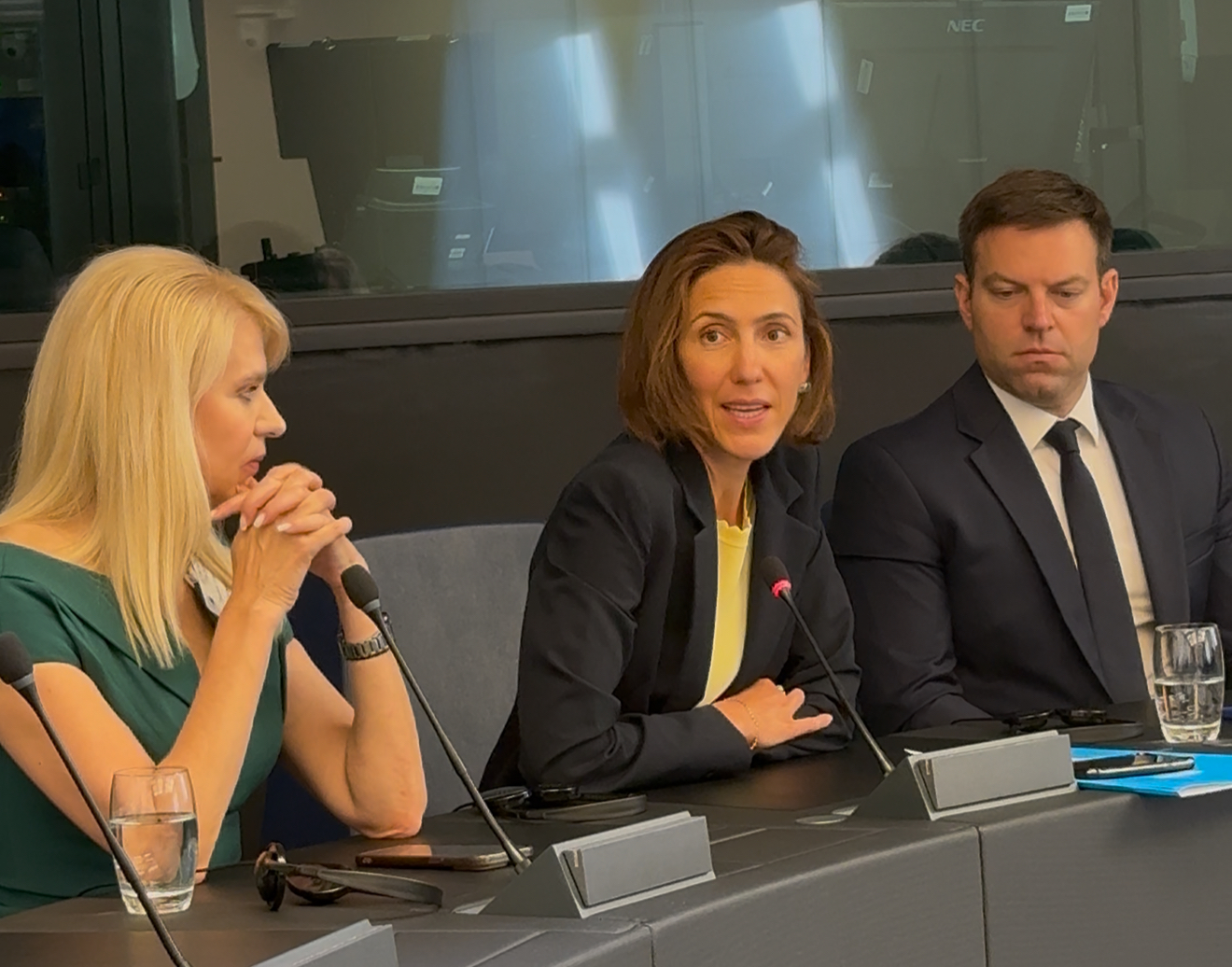More than two years after Greece’s worst rail crash claimed 57 lives, the European Parliament has put the Tempi tragedy back under a harsh spotlight, insisting that Europe itself has a stake in ending what families describe as a “cover-up.” The 17 June debate, convened by the European Democratic Party (EDP) and its Renew Europe allies, brought grieving relatives to Strasbourg alongside MEPs determined to keep the case on Brussels’ agenda.
The railway accident on February 28th 2023, where a passenger train packed with students returning from a long weekend collided with a freight train traveling on the same track, exposed gaping holes in Greece’s safety systems and prompted an EU investigation into compliance with rail-security rules. Yet, the Greek government has still not delivered either a credible inquiry or meaningful upgrades to the network.
The current investigation by the conservative New Democracy government has led to a motion that only targets former Minister of Transport Kostas Karamanlis, charging him with a single misdemeanor in the form of a breach of duty. It seeks to absolve the rest of the Government of any responsibility, painting the tragedy as the result of a technical failure and ignoring the widespread corruption and lack of action in the New Democracy government. “It was predictable,” EDP Secretary General Sandro Gozi told the European Parliament plenary. “The signs were there, as were the resources. But the state failed to act.”

During a dedicated event in advance of the debate, relatives of the victims were given the floor first to share their concerns, and their testimony was scathing. They accused the New Democracy Government of obstructing the courts, intimidating whistle-blowers and destroying forensic evidence. “We have no answers to our questions. We do not have a proper investigation. We are in limbo… It is painful to have to seek justice for a crime that took place in your own country, outside your own country,” said Maria Karystianou, whose daughter was on the train.
Pavlos Aslanidis, who lost his 20-year-old son, was even more blunt: “This is not negligence; it is an institutional cover-up,” he declared, recalling that biological samples belonging to his child were inexplicably destroyed. Fellow parent Theodoros Eleftheriadis added a stark warning: “Nothing has changed. As if 57 deaths were not enough.”
Their anger resonated with Movement for Democracy President Stefanos Kasselakis, who urged Brussels to treat the disaster as a pan-European concern. “For many of us, shedding light on the Tempi crime is a national goal. Today is an opportunity for the victims’ relatives to turn to Europe. Tempi is a European issue because it happened on EU territory and involved European citizens, who must feel safe wherever they travel,” he said. Renew Europe Chair Valérie Hayer thanked the families for their persistence, admitting: “We did not realise how serious the situation was. Thanks to your courage, Tempi is now a European issue.”

Behind the scenes, bringing the debate to the chamber was not straightforward. According to organisers, the conservative European People’s Party which New Democracy belongs to tried to keep the matter off the agenda, arguing that transport safety is a national prerogative. But MEPs from Renew and the EDP mustered a cross-party coalition to force a discussion, insisting that the European Union cannot allow systemic rule-of-law breaches on its territory.
Gozi continued to set the tone for a more muscular response during the Plenary debate. “Now they are trying to reduce everything to a technical error to avoid taking political responsibility. This is not justice,” he warned. Citing what he called “political pressure being exerted on the Greek judiciary” and “widespread violations of European law,” he argued that Tempi “is a symptom of a crisis of the rule of law from within.” While the European Commission has already opened an infringement procedure over rail safety shortcomings, Gozi said “the truth is not negotiable. Justice cannot wait. Silence is no longer an option.”
“Without justice, there can be no democracy; without truth, Europe will lose its soul,” the EDP said in a statement after the debate, vowing not to abandon the Tempi families. For the Parliament’s democratic and liberal centre, the case has become a litmus test of the Union’s promise to protect its citizens wherever they live — and a reminder that European solidarity does not end at the border of competence but begins whenever fundamental rights are at stake.











